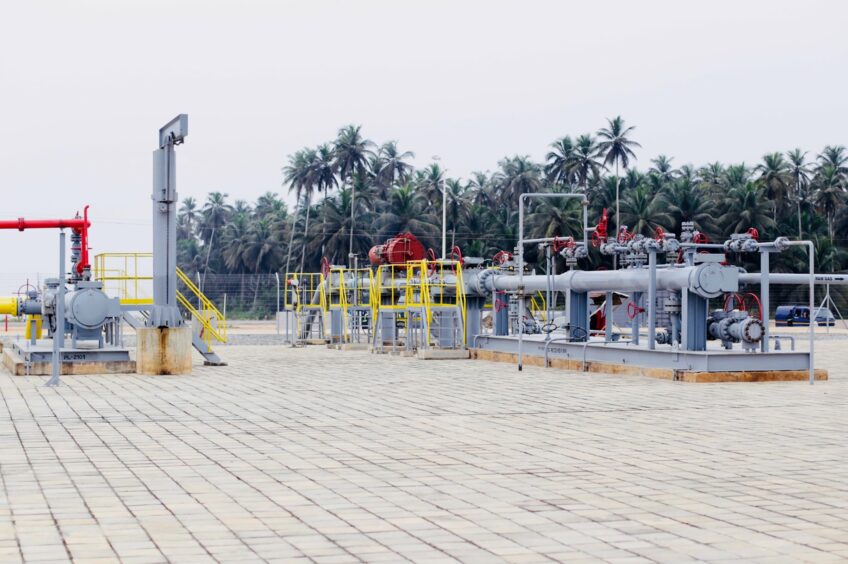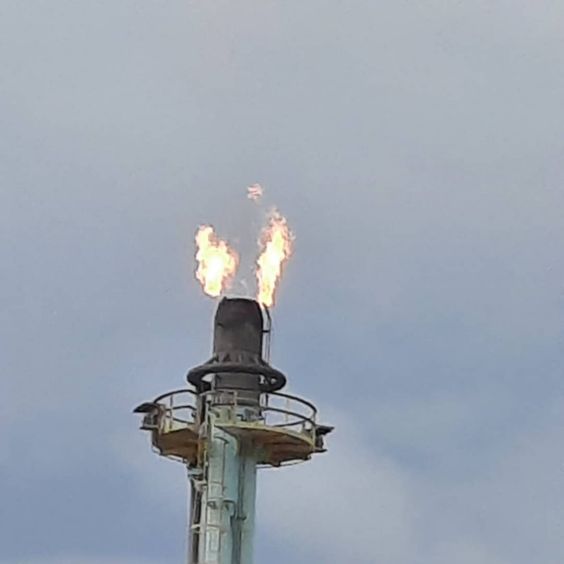
Ghana’s oil industry has had a fair amount of success in making its case to the local population, but a move onshore risks inflaming tensions.
Ghana President Nana Akufo-Addo has set out the case for the Petroleum Hub, in demonstration of the government’s determination to improve the economy.
The Petroleum Hub would cover a proposed 20,000 acres in western Ghana and would include four 150,000 barrel per day refineries. The plan also calls for two jetties, storage facilities and two petrochemical plants.
The government plans to build the site in Bonyere, in the Western Region.
“There’s very little involvement for the local people in the Petroleum Hub,” Ghana Environmental Advocacy Group (GEAG) convener Elizabeth Vaah said. “This is just a ploy to take the land from the people.”
Plans for the hub have not involved enough consultation with the local people, Vaah said. Environmental investigation processes have been carried out largely in English, rather than in local languages.
Local regulators have not shown enough care or interest in the proposals, Vaah said.
The price tag for the proposed hub has been set at a cool $60 billion and the plan calls for completion by 2030. Each refinery would cost $5.4bn, Fitch Solutions has said.
The Ministry of Energy and Ghana National Petroleum Corp. (GNPC) have not responded to requests for comment. The Petroleum Commission referred queries to the ministry.
Scale
The Petroleum Hub plan involves 20,000 acres for the petroleum-processing facilities, in a potential total area of 50,000 acres.
Vaah described the 20,000-acre target for the refineries as excessive, “even compared with the largest refinery in the world”.
Nigeria’s Dangote Refinery site, which will have 650,000 barrels per day, will cover 7,500 acres. The amount of land proposed for Ghana’s Petroleum Hub “is insane”, Vaah said.
“We are concerned this is just another pie-in-the-sky plan to grab beautiful tourism prime real estate, held by the people – and then they can do whatever they want with it,” she continued. “There are no proper plans to compensate the people beyond a few cedis today.”
GEAG has set out some recommendations on how a process may go ahead. The group does not wholly oppose the plan, just the lack of preparation that has gone into it. Vaah suggested a smaller initial site, of 5,000 acres, rather than just “grabbing 20,000 acres”.
Compensation “has to be generational”, she continued. Land is held in trust for the next generation. Monetary compensation “must take care of you and the people to come”.
Ghana’s government has taken an aggressive stance in its energy industry. GNPC recently announced a deal to increase its stake in the Jubilee and TEN fields. There has also been discussion about the state buying into Aker Energy’s Pecan project in order to accelerate development.
Aker Energy has faced challenges in its work not least with the government rejecting a plan, criticised as being overly broad.
ExxonMobil arrived in Ghana to much fanfare in mid-2019, opening an office in Accra, as it began exploration in the Deepwater Cape Three Points block. However, the US super-major pulled out earlier this year.
Plans
Ghana Gas has raised the possibility of supplying the hub with gas from the Atuabo-Cote d’Ivoire gas pipeline project. In particular, the pipeline could supply a proposed fertiliser plant in Jomoro district.
Parliament passed a bill establishing the Petroleum Hub Development Corp. (PHDC) in October 2020. The Ministry of Energy said it was in talks with three potential bidders on the first phase investment, which would require $12bn.
Ghana National Petroleum Corp. (GNPC) allocated $10mn to acquire land for the plan in 2020.
In September, Ghanaian Energy Minister Matthew Opoku Prempeh oversaw the first meeting of the PHDC. The minister said the hub was part of the ongoing work to maximise value “within the downstream petroleum arena”. He highlighted “Ghanaian content and Ghanaian participation regulations. Ghanaians should not be left behind in this Petroleum Hub agenda.”
PHDC appointed the president of the Western Nzema area and traditional ruler, Awulae Annor Adjaye III, to the role of chairman. “They made the omanhene of the palace the chair, but he’s not having any voice,” Vaah said.
“The traditional chief has backed the hub plan but there have been problems with these sorts of arrangements in other instances. These plans have to gain the support of the people,” said Songhai Advisory analyst Kobi Annan.
Seaweed
Another point of mounting criticism for the energy industry has been increased sargassum incursions on local beaches.
“I’ve never seen anything like this,” Vaah said. “Fishermen can’t get past the weed. The sargassum extends hundreds of metres deep into the sea. We’ve never had that before.”
Locals have linked the growth of sargassum to the arrival of the oil industry. One man interviewed by Joy News noted that growing up, he had never seen such growth. It was only in 2010, when the Jubilee field began producing, that the seaweed became more noticeable.
No proof has been provided showing a link between the arrival of Ghana’s oil industry and sargassum. However, the oil industry will face scrutiny from already sceptical locals, which the Petroleum Hub plans will not help.
“The government has not bothered to say a word,” Vaah said.
Next steps
Songhai’s Annan said that, in general, the relationship between the oil industry and local people had been positive.
“There’s not much happening onshore and the major producers have been good at promising, and delivering, CSR projects. Takoradi has been transformed entirely, for instance,” he said. The Petroleum Hub “would be the first major onshore project that would test this relationship”.
Annan expressed scepticism that the project would make much progress. While petroleum demand is rising in West Africa, there are few indicators that there is a need for new refining capacity, not least with Nigeria’s Dangote plant starting up in early 2022.
Furthermore, there have been some challenges for foreign investment in Ghana recently. Eni has seen some court decisions go against it over a disputed unitisation project and there were tax issues with the sale of Oxy’s offshore stakes.
“These don’t paint the best picture for Ghana”, Annan said.
Furthermore, Ghana’s existing Tema Oil Refinery (TOR) is continuing to struggle. The Songhai analyst said TOR need “structural change” to survive. “It has debt problems and workforce problems, while also needing to invest in overhauling defunct systems.”
Ghana’s offshore industry has succeeded but operations onshore are more complicated. Locals have complained of Ghana Gas flaring at its gas processing plant in Anokyi.
Discontent is already simmering as a result of land acquired by the gas company. Extending this push into the Petroleum Hub – that may not actually come to fruition – is likely to increase the ill will for the oil and gas industry locally.

